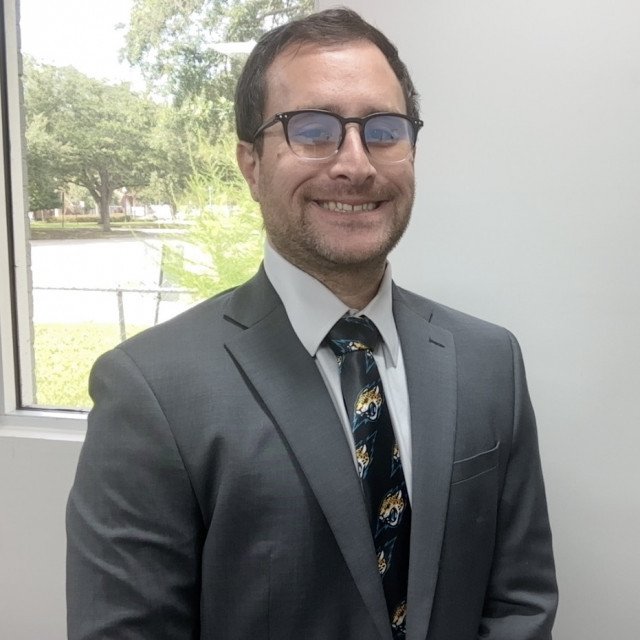- Free Consultation*: (904) 685-1200 Tap Here To Call Us
What Is The Difference Between Will And Estate Planning?

While “will” and “estate plan” are often used interchangeably, they have different meanings. Each component serves distinct roles in safeguarding your legacy. A will is a single legal document, whereas estate planning is a comprehensive strategy that includes multiple tools to protect your assets, health, and loved ones during your life and after death. Here, we discuss the nuances of a will vs an estate plan to help you make informed decisions for your Florida family.
The Basics: Will vs Estate Plan Explained
A will, also called a “Last Will and Testament,” is a legal document that outlines how your assets should be distributed after death. The will is one component of an overall estate plan. This document allows you to:
- Name beneficiaries for property, bank accounts, personal effects, and other assets.
- Appoint guardians for minor children.
- Specify your preferences for your funeral and burial.
However, a will has limitations and is limited in scope. It only addresses some things that must be handled at the end of your life. A will doesn’t handle incapacity. The will is activated after death and must go through probate. Probate is a court-supervised process that can delay asset distribution and incur legal fees and is also public.
Conversely, estate planning is a holistic approach that includes a will alongside other critical documents and strategies, such as:
- Trusts to bypass probate and manage assets during your lifetime.
- Durable Power of Attorney to appoint someone for financial decisions if you are incapacitated.
- Healthcare Directives to outline medical preferences and designate a healthcare proxy.
- Beneficiary Designations for accounts like life insurance or retirement plans.
Unlike a will alone, estate planning addresses scenarios both during and after your life. This ensures comprehensive management of your affairs under most circumstances.
Why You Need Both
While a will is essential, relying on it alone leaves critical gaps:
- Incapacity Risks: Without a power of attorney or healthcare directive, courts may appoint someone to manage your affairs during illness or injury.
- Probate Delays: Assets in a will must go through probate, a public process that can take months (or years) to resolve.
- Unprotected Beneficiaries: A will cannot provide for minors or dependents with special needs as effectively as a trust.
Estate planning fills these gaps by creating a safety net for your health, wealth, and family. For example, a revocable living trust allows assets to transfer directly to beneficiaries without probate, while a medical directive ensures your wishes are honored if you cannot communicate.
When to Choose a Will vs. a Full Estate Plan
A will may suffice if:
- Your estate is small and uncomplicated, such as a single home and bank account.
- You have no minor children or dependents requiring long-term care.
- You’re comfortable with assets going through probate.
You should opt for full estate planning if:
- You own multiple properties, businesses, or complex investments.
- You want to minimize taxes or avoid probate entirely.
- You have minor children, blended families, or beneficiaries with special needs.
Even for modest estates, Florida residents benefit from estate planning to address healthcare decisions and unexpected incapacity. These are issues a will alone cannot resolve.
Getting Started On Your Estate Plan
Even if you’ve already completed a will, there is more to an estate plan. To begin, you’ll need to:
- Inventory all assets: List properties, accounts, and valuables to determine your estate’s complexity.
- Prioritize your goals: Decide if avoiding probate, tax reduction, or guardianship is most critical.
- Consult a Florida estate attorney: State-specific laws impact wills, trusts, and healthcare directives. An attorney ensures your plan complies with Florida’s probate code and addresses unique needs.
Review Your Will And Estate Plan Regularly
Once you’ve completed your estate planning, you’ll need to review it periodically to ensure that it is current and complies with state and federal laws that govern wills and estates.
Regularly reviewing these documents will also ensure that your assets go to the beneficiaries you intended. Without a will or estate plan in place, it falls to the probate court to determine your beneficiaries as if you died without a will. In this scenario, your wishes aren’t considered. That means your assets can be awarded to someone you didn’t intend to have them.
Many divorced spouses have found themselves on the receiving end of assets because their ex had not updated their will to include their current spouses, additional children, or grandchildren. They may have intended to remove relatives or other individuals who were either deceased or no longer in their circles but didn’t. Scenarios like these complicate matters and may require a judge to sort them out for the estate.
One issue in actor Gene Hackman’s estate is that his will and estate plan were signed in 2005 in New Mexico, nearly 20 years before he died. His wife, Betsy Arakawa, was his sole beneficiary, but she died a week before he did. According to reports, Hackman previously named his former attorney, Michael G. Sutin, as his estate’s personal representative and successor if his wife died first. Sutin died in 2019, and his representation was then transferred to Julia L. Peters, chief counsel at Avalon Trust Co.
Understanding the difference between a will and estate planning is vital to protecting your legacy. A will is a foundational document, but an estate plan offers comprehensive protection for your health, wealth, and family—both during life and after death. For Florida residents, partnering with an experienced estate attorney ensures your plan addresses state-specific laws and your family’s unique needs.
Prioritizing both a will and a full estate plan offers peace of mind, knowing your loved ones are shielded from unnecessary stress, legal hurdles, and financial uncertainty once you’re gone.
Working with a Florida will and estate planning attorney can help you create a comprehensive estate plan that protects your assets, provides for your loved ones, and gives you peace of mind for the future. When you’re ready to move forward with your estate planning, contact our estate planning attorney to schedule your consultation.











